With home security on the rise, more people are installing CCTV cameras. But what happens when your neighbour’s camera is pointing at your home, garden, or even through your window?
It’s a valid concern, and many UK residents ask the same question: Can my neighbor have CCTV pointing at my house UK?
The answer depends on how the CCTV is used, what it captures, and whether your neighbour is complying with privacy laws. In this guide, you’ll find out what’s legal, what’s not, and what you can do if your neighbour’s camera is invading your space.
Why Are Neighbours Installing CCTV More Often?
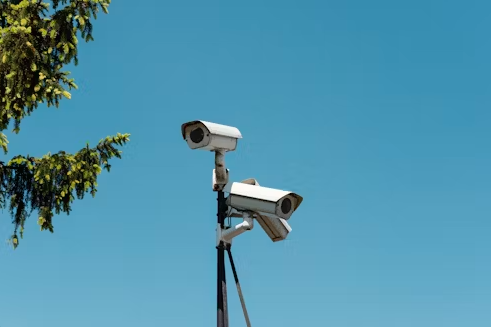
Is Home Surveillance Legal in the UK?
Yes, it’s legal for homeowners to install CCTV systems on their own property for the purpose of crime prevention and personal safety. However, they must follow privacy laws if their cameras record areas beyond their boundary—such as a neighbour’s garden or public footpaths.
What Motivates People to Point Cameras at Nearby Properties?
Common reasons include:
- Protecting their vehicle, garage, or front door
- Monitoring shared driveways or alleyways
- Capturing evidence of anti-social behaviour
- General security concerns in high-crime areas
While some reasons may be valid, cameras should not intrude on your private space.
When Does It Cross the Line Into Invasion of Privacy?
It becomes problematic when cameras:
- Are aimed directly at your windows or doors
- Record areas where you have a reasonable expectation of privacy
- Capture audio without consent
- Are used without appropriate signage or data protection compliance
Can My Neighbour Have CCTV Pointing at My House UK?
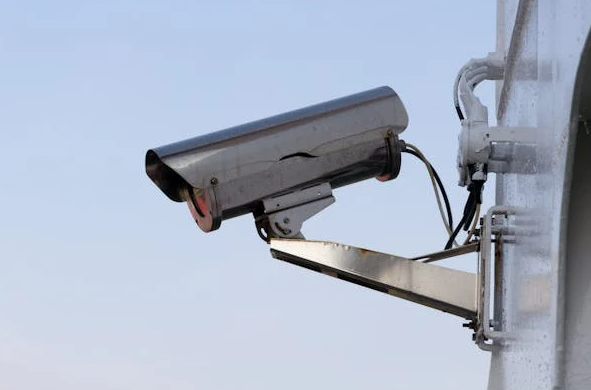
What the Law Says About Domestic CCTV Use?
Your neighbour can install CCTV, but if their camera records beyond their property boundaries, the law requires them to:
- Use the footage fairly and lawfully
- Inform people about the surveillance (e.g., with a visible sign)
- Avoid excessive or unjustified recording
- Secure and restrict access to recordings
- Comply with the UK GDPR and the Data Protection Act 2018
Are They Allowed to Record Footage of You or Your Property?
Only under certain conditions. If your neighbour’s CCTV captures your front door, garden, or driveway, they must show a legitimate reason and follow proper protocols.
If they’re recording your private living areas (e.g., bedroom window), this could be considered an invasion of privacy.
Is It Legal If the CCTV Records My Garden, Driveway, or Windows?
This depends on whether:
- The camera’s focus is justified
- You were informed about the recording
- The footage is used responsibly
A simple rule: the more your private space is being monitored, the more your neighbour has to justify and manage the system lawfully.
Understanding Your Legal Rights and the Role of GDPR
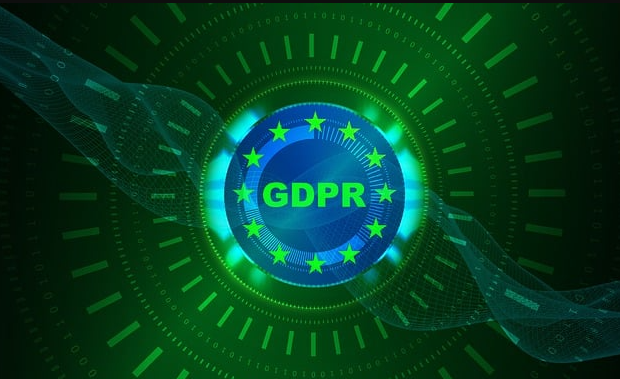
Does the General Data Protection Regulation (GDPR) Apply?
Yes. When domestic CCTV captures areas outside the camera owner’s property, GDPR applies. That includes your:
- Front garden or driveway
- Shared access paths
- Parking spaces or communal areas
Under GDPR, your neighbour must:
- Clearly explain why they are recording
- Only keep footage for a limited time
- Provide you access to any footage they hold of you upon request
What Is Considered a Breach of Your Privacy?
You may have a claim if:
- The camera is focused deliberately and unnecessarily on your home
- You feel harassed, monitored, or intimidated
- The footage is shared without your consent
- Audio is recorded without justification
When Is Your Neighbour Required to Register as a CCTV User?
If their system:
- Records outside their own property, and
- Captures identifiable individuals
Then they may be required to register with the Information Commissioner’s Office (ICO) as a data controller.
What Should You Do If Your Neighbour’s CCTV Feels Invasive?
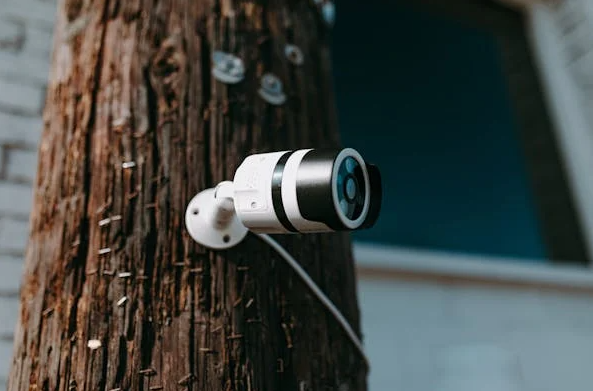
Can You Ask for the Camera to Be Moved?
Yes. Start by communicating calmly and expressing your concerns. Many CCTV users don’t realise the discomfort they cause.
You can ask:
- Why the camera is pointing toward your property
- If it can be re-angled or adjusted
- Whether the footage is being stored or used in any way
Should You Speak to Your Neighbour or Make a Formal Complaint?
Try resolving the issue informally first. If that fails:
- Send a written complaint
- Request footage under GDPR
- Inform your neighbour of their data protection obligations
Still unresolved? You may need to:
- Report them to the ICO
- Contact your local council’s environmental health team
- Seek legal advice
When Should You Involve the ICO, Police, or Your Local Council?
Contact:
- ICO if your privacy rights under GDPR are being breached
- Police if the camera is used to harass or stalk you
- Local council if it’s causing a nuisance or ASB
Acceptable vs Unacceptable Use of CCTV in Residential Areas

When Is It Reasonable to Use CCTV for Security?
Acceptable uses include:
- Covering your own garden, car, or entrance
- Placing cameras within your boundary
- Having clear signage that CCTV is in operation
- Disabling audio or not recording sound unnecessarily
What Counts as Harassment or Excessive Surveillance?
Red flags include:
- Camera focused intentionally on your bedroom or bathroom
- Continual adjustment to monitor your activities
- Excessive zoom or audio recording
- Use of dummy cameras meant to intimidate
Are Audio Recordings Also Covered by CCTV Law?
Yes. Audio recording is seen as far more intrusive than video. Most domestic CCTV systems do not need to record sound, and doing so without a valid reason may breach GDPR and privacy rights.
Practical Tips for Dealing with CCTV Disputes
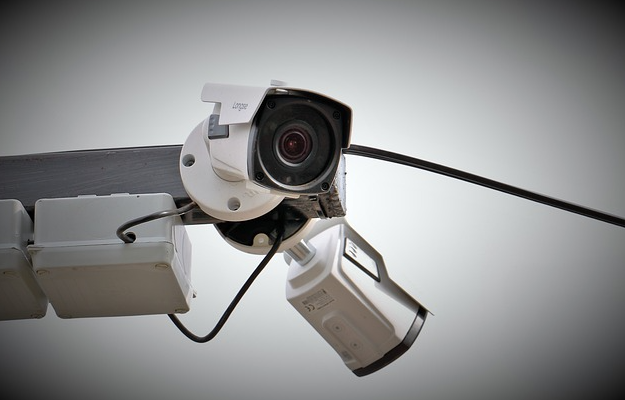
What Evidence Should You Collect?
- Photos or videos showing where the cameras are pointed
- Any footage shared online or with others
- Copies of written complaints or letters
- Witness statements from other neighbours
How to Write a Formal Complaint
Include:
- A clear summary of your concerns
- Dates and examples of intrusive behaviour
- A request for the camera to be adjusted or justified
- Mention of your rights under GDPR
Alternative Solutions: Fences, Blinds, or Mediation
If formal steps don’t resolve the issue:
- Install a privacy fence or screening
- Use window film or blinds in affected areas
- Request a mediation session through your local council or community service
Your Rights vs Your Neighbour’s CCTV Responsibilities
| Your Rights | Your Neighbour’s Legal Duties |
| Not to be recorded unnecessarily | Only record what is reasonable and relevant |
| To be informed about surveillance | Place CCTV signs clearly and visibly |
| To access your recorded image (GDPR subject access) | Respond to subject access requests within 1 month |
| Not to be harassed or stalked | Avoid pointing cameras at private living areas unnecessarily |
| To file a complaint with the ICO | Register as a data controller if recording off their property |
Conclusion: Protecting Your Privacy Without Escalating Conflict
So, can your neighbour have CCTV pointing at your house UK? Yes—but only within the limits of the law. They cannot:
- Record you excessively
- Violate your privacy
- Ignore data protection obligations
If their CCTV system makes you feel uncomfortable or monitored, you have options—from informal requests to legal complaints. With the right information and calm communication, you can often resolve issues without conflict.
FAQs About Neighbour’s CCTV Facing Your Home in the UK
Can My Neighbour Record My Conversations or Sound?
Only if they have a valid reason and tell you. In most cases, audio recording is discouraged and could be unlawful if used without consent.
Can I Force Them to Take the Camera Down?
Not directly—but if their use breaches your privacy rights, you can:
- Report them to the ICO
- Complain to your local council
- Pursue civil action in serious cases
What Happens If I Record Them in Return?
If you install your own camera, you must also comply with the law—including not pointing it solely to retaliate or harass them.
Will the Police Help Me If I Feel Harassed?
Yes. If the camera use is targeted and intimidating, police can intervene under harassment laws or Protection from Harassment Act 1997.
I’m Laura Wilson, a passionate blogger and content creator with a deep interest in business, finance, and entrepreneurship. I’ve had the opportunity to write for several premium blogs, sharing insights & practical advice for individuals & small businesses. I’m the founder and publisher of ukbusinessmag.co.uk, where I focus on creating valuable, easy-to-understand content to help UK startups & SMEs grow.



